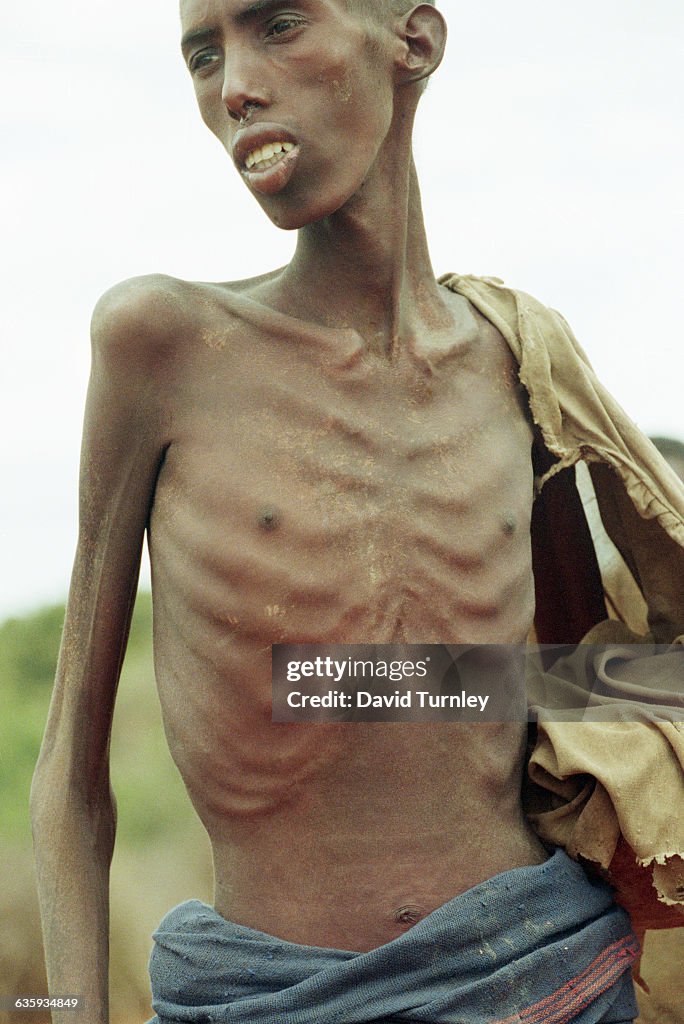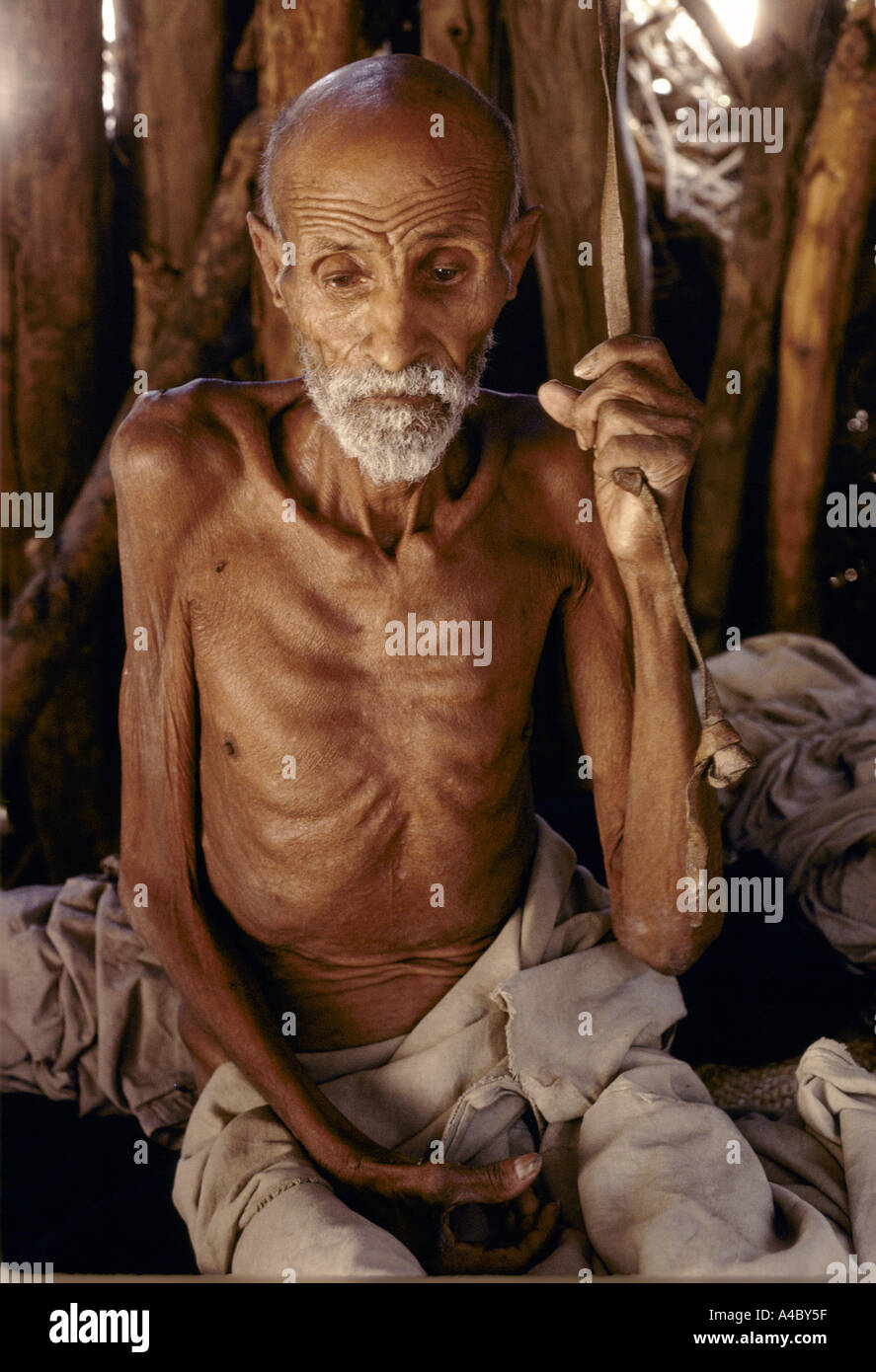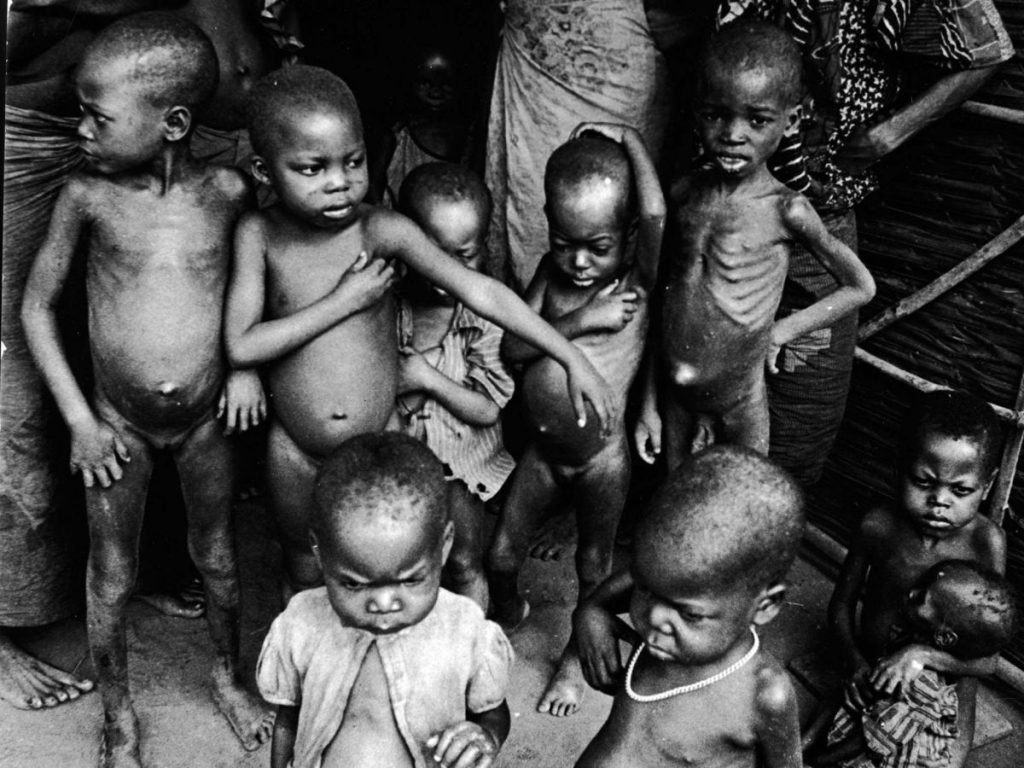The Horrors Of Starvation: Stories, Risks & More To Know
Could you imagine going over a year without eating a single bite of food? Angus Barbieri, a Scottish man, did just that, undertaking a medically supervised fast for 382 days, an extreme feat that continues to fascinate and baffle medical professionals today.
In June 1965, Barbieri, who weighed over 400 pounds, checked himself into the University Department of Medicine at the Royal Infirmary of Dundee, Scotland, seeking help with his weight. Initially, a short fast was planned to help him lose some weight before being put on a more conventional diet. However, Barbieri felt remarkably well and insisted on continuing the fast for a much longer period, under close medical supervision. The weight loss was dramatic; in those 382 days, he shed an incredible 125 kilograms, achieving his goal weight and a physique that allowed him to fit back into his old clothes. But this extraordinary weight loss journey was not without its risks and raises serious questions about the limits of human endurance.
| Category | Information |
|---|---|
| Full Name | Angus Barbieri |
| Nationality | Scottish |
| Occupation Before Fast | Worked in his father's fish and chip shop. |
| Age at Start of Fast | 27 (in 1965) |
| Starting Weight | Approximately 456 pounds (207 kg) |
| Goal Weight | Approximately 180 pounds (82 kg) |
| Weight Loss | 125 kilograms (276 pounds) |
| Duration of Fast | 382 days (just over one year) |
| Start Date of Fast | June 1965 |
| Medical Supervision | Under the care of doctors at the University Department of Medicine at the Royal Infirmary of Dundee, Scotland. |
| Diet During Fast | Primarily water, tea, coffee (all with no sugar), and supplemented with vitamins and electrolytes, particularly potassium and sodium. He also consumed small amounts of yeast. In the later stages, he had small amounts of milk and occasionally a bit of sugar. |
| After Effects | Reportedly maintained a significantly lower weight after the fast. |
| Reference | https://www.ncbi.nlm.nih.gov/pmc/articles/PMC2495396/ (Note: This is a related study about starvation and metabolic response, not directly about Angus Barbieri but provides medical context.) |
While Barbieri's case is extraordinary, it's critical to understand the very real and dangerous effects of starvation. Starvation, defined as a severe deficiency in caloric energy intake below the level needed to sustain life, is an extreme form of malnutrition. Prolonged starvation in humans can lead to irreversible organ damage and ultimately, death. The cluster of symptoms and effects associated with starvation is referred to as "inanition."
- Dating Images Exploring Black Women What You Need To Know
- Arizonas Wave Discover The Surreal Beauty Hiking Tips
The human body is an intricate machine, and when deprived of essential nutrients, it begins to shut down. First, the body starts to break down muscle tissue for energy, leading to muscle wasting and weakness. Then, vital organs such as the heart and liver can suffer permanent damage. The immune system weakens, making the individual more susceptible to infections. Electrolyte imbalances can occur, leading to heart problems and other life-threatening complications. Indeed, the very act of prolonged starvation is considered a crime under international criminal law, often employed as a tool of torture or execution.
The fact that Barbieri survived such a long fast is remarkable, but it was not without its challenges. He was closely monitored by doctors throughout the process. He regularly visited the hospital for check-ups and blood tests. He was allowed to drink water, tea, and coffee (without sugar), and he took vitamin and electrolyte supplements to counteract the deficiencies caused by the lack of food. In the later stages of the fast, he occasionally consumed small amounts of milk and sugar. He also took yeast, which is a source of B vitamins.
However, it's important to consider how hungry Angus Barbieri must have felt throughout those 382 days. While his body adapted to using its fat reserves for energy, the psychological impact of such extreme food deprivation must have been immense. The constant battle against hunger pangs, the social isolation from not being able to partake in meals with others, and the sheer mental fortitude required to continue for so long are aspects of his journey that often get overlooked.
- Untold Story Mount St Helens Eruption In 1980 Rare Photos
- Discover Green Liquor Bottles Styles Uses More
The story of Angus Barbieri stands in stark contrast to other narratives surrounding starvation. While Barbieri's fast was a medically supervised attempt to improve his health, millions of people around the world suffer from involuntary starvation due to poverty, famine, or conflict. For these individuals, starvation is not a choice but a brutal reality. It is a tragedy that leads to immense suffering and loss of life.
In literature and art, the image of the "starving man" is often used to represent profound suffering and desperation. A powerful example can be found in John Steinbeck's "The Grapes of Wrath," where Rosasharn, after experiencing her own personal tragedy, breastfeeds a starving man in a barn, symbolizing an ultimate act of altruism and human connection in the face of unimaginable hardship. This iconic scene underscores the depths of despair and the desperate measures people take to survive in the most dire circumstances. The scene, depicting Rosasharn's act of giving, caused considerable controversy upon the book's publication in 1939. The act can be seen as humanity's ability to find compassion in the most desolate moments, even as the starving man embodies complete lack and need.
The concept of starvation also appears in unexpected places, such as the card game Inscryption, where "Starvation" is a card that signifies the challenger's lack of resources and the desperation that ensues. The card appears when the player runs out of cards to draw, symbolizing a strategic dead end and the looming threat of defeat.
Even in the digital world, the "starving man" trope is present. In some video games, such as those referenced in online forums, players encounter "hungry man" quests that involve feeding a character to progress in the game. These quests, while fictional, touch upon the primal need for sustenance and the lengths people will go to satisfy their hunger. One such quest, referred to as "The Hungry Man Quest," involves upgrading instincts by meeting certain criteria, such as level requirements, completing citizen quests, and obtaining accessories like a Musketeer Hat. Meeting these requirements, and often acquiring significant amounts of in-game currency (e.g., 5,000,000) and experience points, allows players to advance their characters and overcome challenges within the game's world.
It is crucial to remember that the human body's ability to survive without food is highly variable. Factors such as age, health, and hydration levels play a significant role. Someone who is young and healthy and has access to water will likely survive longer than someone who is elderly or ill and deprived of both food and water. Generally, a person can survive for several weeks without food, but only a few days without water. The exact length of time depends on the individual and their specific circumstances.
While Angus Barbieri's story is a testament to the body's resilience and the power of medical supervision, it is not a model for weight loss. Prolonged fasting can be extremely dangerous and should only be undertaken under the guidance of a qualified medical professional. The risks of starvation far outweigh any potential benefits for most people. The focus should always be on a balanced diet and regular exercise to maintain a healthy weight. Safe and effective methods for weight loss involve gradual lifestyle changes that promote long-term health and well-being.
Furthermore, it's worth noting that after Barbieri ended his fast, he did regain some weight, but he remained significantly lighter than he was before. He reported that he enjoyed his first meal back: a boiled egg and a slice of bread with butter. His story serves as a reminder of the complex relationship between food, health, and the human body's capacity to adapt to extreme conditions. It highlights the importance of responsible and sustainable approaches to weight management and the dangers of extreme dieting practices. At least one person has reportedly even gone longer without food than Barbieri, but these cases are rare and often lack the same level of medical documentation.
The term "starving man," though simple, encompasses a wide range of meanings, from the literal deprivation of food to the symbolic representation of need and resilience. Whether it's a patient undergoing a medically supervised fast, a character in a novel struggling to survive, or a player navigating a virtual world, the image of the starving man continues to resonate with us, reminding us of the fundamental importance of nourishment and the enduring human spirit.
The "Starving Man" also brings to mind local businesses, such as the "Starving Man" restaurant in Altrincham. This illustrates how the concept of hunger, even in its milder form, can be used in everyday life. A restaurant called "Starving Man" might suggest hearty portions to satisfy a large appetite. According to TripAdvisor, the "Starving Man" in Altrincham offers a variety of options, including garlic bread, pizza sauce, and other foods "a bit of everything except fish." This establishment capitalizes on the idea of satisfying hunger, a concept that contrasts sharply with the extreme deprivation experienced by individuals facing actual starvation. Checking the spelling or trying a new query online might lead one to this establishment, highlighting the word's varied uses.
The tale of Angus Barbieri is not an endorsement of extreme dieting; rather, it is an outlier, a physiological curiosity that underscores the body's remarkable adaptability and the crucial role of medical oversight in such extraordinary circumstances. It remains a cautionary tale, a testament to both human endurance and the inherent risks of starvation, urging a balanced and mindful approach to health and well-being.
- Untold Story Mount St Helens Eruption In 1980 Rare Photos
- Timeless Style Older Women Stockings See How They Do It

A Somalian man surviving as a skeleton in a famine sticken village

Severe malnourishment hi res stock photography and images Alamy

Hunger and Starvation Across the World is Affecting Half of Human Race